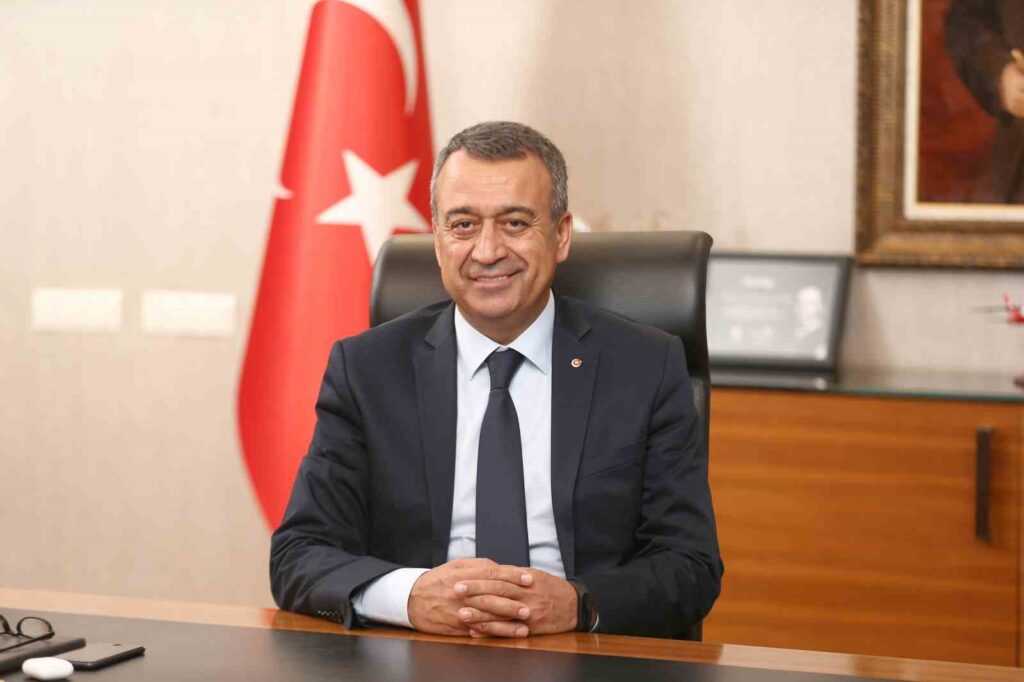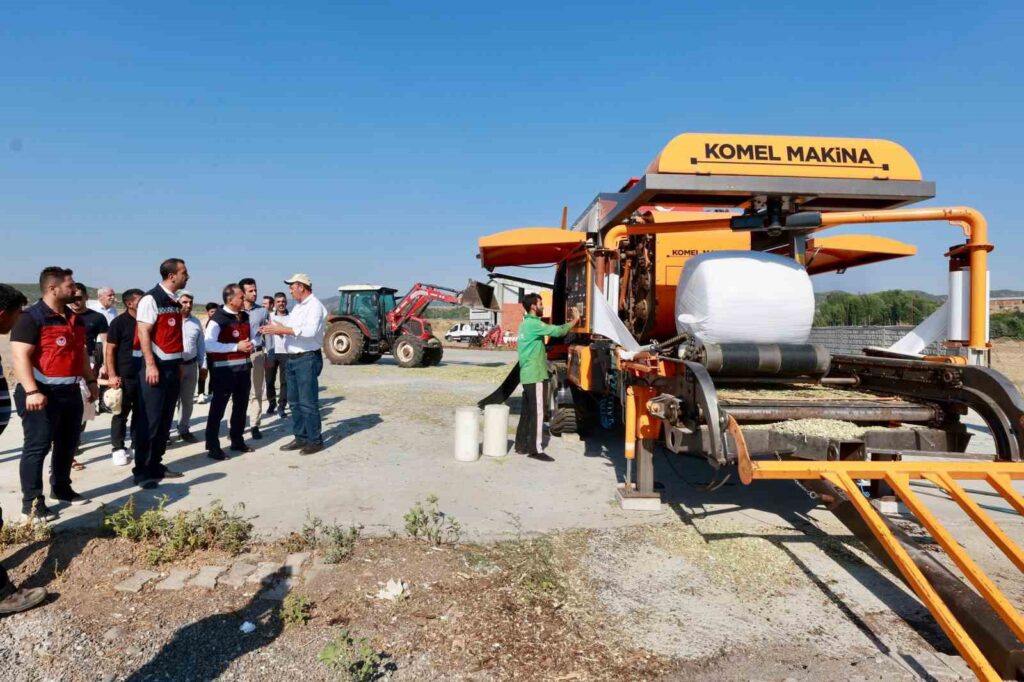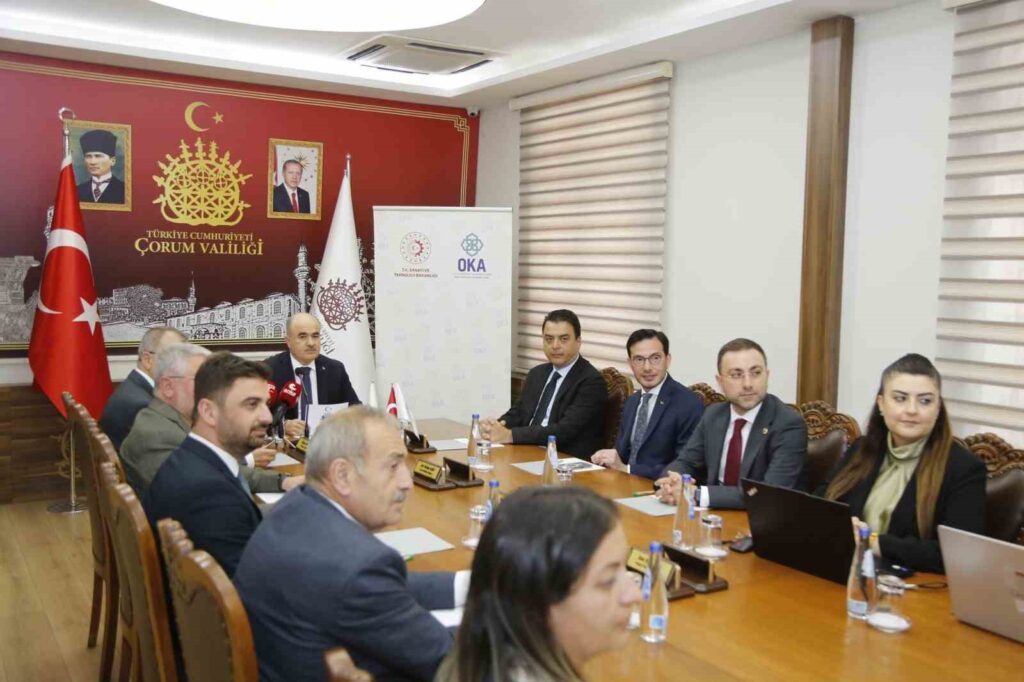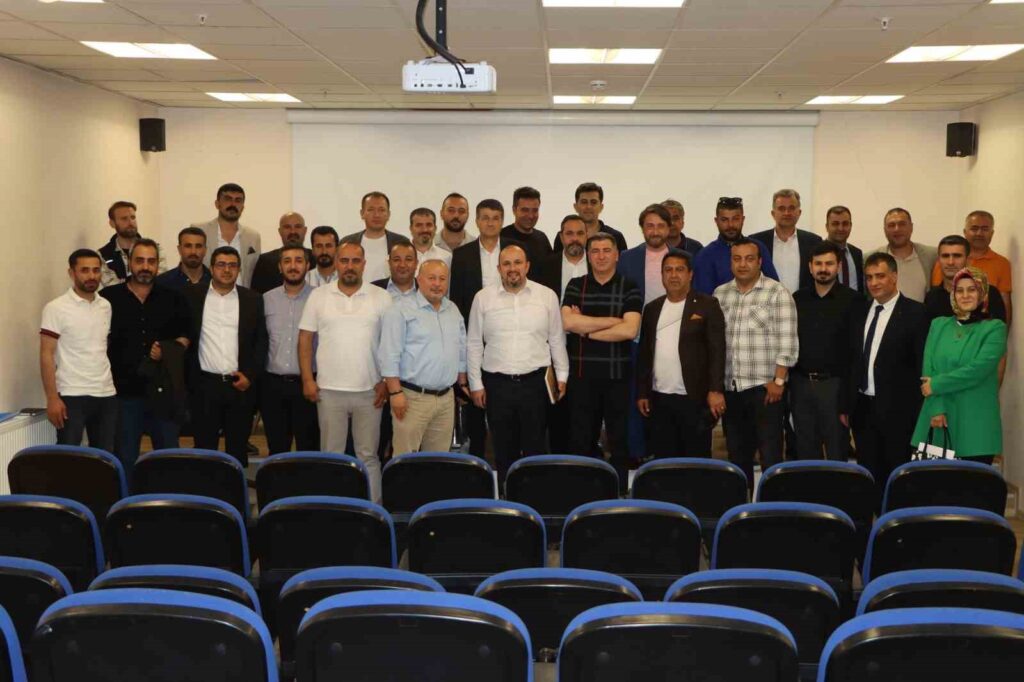GAİB Coordinator President Kileci evaluated the economic agenda.
The Deputy President of the Turkish Exporters Assembly (TİM) and the Coordinator President of the Southeastern Anatolia Exporters Unions (GAİB), Fikret Kileci, evaluated the economic agenda. Kileci discussed the contribution of exports to growth, the public savings package, and tight monetary policy …

Turkey Exporters Assembly (TİM) Vice President and Southeastern Anatolia Exporters Associations (GAİB) Coordinator President Fikret Kileci evaluated the economic agenda.
Kileci made striking statements regarding the contribution of exports to growth, the public savings package, tight monetary policy, the decline in exports in June, financing costs, the impact of exchange rates on exports, and the overall economic situation and future of the Southeastern Anatolia Region.
“Savings should always be made”
TİM Vice President Kileci emphasized that savings should be implemented not only in difficult times but all the time and that it should be applied from top to bottom while explaining his views on savings measures. President Kileci stated, “Savings measures are a must that are applied all over the world. However, savings measures should cover everyone, be widespread, and be implemented from top to bottom, not from bottom to top. As businesspeople, we are always ready to make sacrifices. But this sacrifice should be made by everyone. If you apply this savings and tightening only to one segment, it creates imbalances and problems. Savings should not only be in financial matters. We should also use our time and relationships correctly.”
“We should spread sacrifice to all segments”
Kileci also responded to the question, “How did you find the first 6 months of the tight monetary policy?” by saying, “The policy being implemented shows some benefit in one way or another. Its results are emerging. Every country is applying tight monetary policy to overcome the process the whole world is going through. We are also going through these applications. Expansive and restrictive monetary and fiscal policies are applied in a cycle in every economy from time to time. Of course, there will be relaxations in the future, and normalization steps will be taken. However, it should be emphasized again that this policy needs to be spread to the general public; this sacrifice should not be made by only one segment or sector. If we spread the sacrifice to all segments, we will overcome this process more easily.”
“We need to read the changes in the world well”
Explaining the reasons for the decline in exports in June, Kileci said, “We have a lot of diversity in products and markets in exports. With the changing balances in the world and changes in consumption habits, our sales models are also changing. Previously, we were good producers and suppliers, especially in textiles, ready-to-wear, and luxury consumption. And we were selling to all segments of the world. However, in the current conjuncture, luxury consumption has given way to the consumption of essential goods. As a country that also produces these, there are certain shifts between sectors. June is a special month. When examined in depth, there are some negatives, but there are also reasons for this. Factors such as having more working days in the previous month and the beginning of summer vacation are present. However, June did not go well. But records were broken before that. We believe that we will turn positive again in July.”
“We can profit from this process”
Kileci also emphasized the importance of analyzing the change and development process in the world very well, especially emphasizing planning. Stressing that plans should be flexible in a world where conditions change every day, Kileci stated, “In this change process, it is necessary to read the developments in the world very well. Of course, we will have short, medium, and long-term plans in the upcoming process. However, these plans need to be checked and revised frequently. Because conditions change every day. A decision you consider correct today may need to be reviewed and revised tomorrow. We are prepared and experienced against obstacles that we will face because we have always worked in this geography facing difficulties throughout our lives. In this sense, we are more advantageous compared to developed countries. If the correct planning is done, we can profit from this process. However, there will definitely be changes in sectors and markets, and it is necessary to read this change well and take steps accordingly.”
“Long-term investments are very difficult with these costs”
Stating that accessing finance is not difficult but that financing costs are very high, TİM Vice President Kileci expressed that high financing costs are the biggest obstacle to long-term investments. Kileci stated that high financing costs are unsustainable, saying, “With the current model, we can only survive the day.” He emphasized the necessity of making very good calculations for long-term investments, saying, “In long-term investments, careful consideration is needed. Because resources are limited, therefore, it is necessary to be very careful and cautious in long-term investments under today’s conditions. But today’s conditions will not always be like this. It seems very unlikely to invest with today’s costs.”
“Exports are the most important weapon of development”
Evaluating the current state of exchange rates, Kileci stated that the disadvantages faced by exporters due to the low exchange rate need to be addressed in some way. Kileci provided the following information about the impact of exchange rates on exporters: “In January, the Dollar exchange rate was around 30 lira, now it is around 33 lira. The 6-month inflation rate is 25%, and the exchange rate increase is 10%. There is a 15% gap in between. We, as exporters, are not entirely bound to the exchange rate. However, the exchange rate is one of the most important instruments for us. Therefore, to maintain our presence in external markets, exchange rates need to move at a certain level along with interest rates and inflation. Of course, a high exchange rate is not correct for the country. Nobody wants this. However, there should not be an exchange rate that will overthrow exporters. There are different supports. There are implementations in other countries. These can be discussed. Because exports are the most important weapon of development. If you cannot sell more than you buy, it will be difficult for you to reach the desired point in international platforms. We are a country aiming to grow with exports. Therefore, having a trade surplus is crucial for our welfare level. Hence, a solution should be found for the exchange rate problem. We are not necessarily saying that the rate should come here, but the damages faced by exporters due to the exchange rate should be compensated. Otherwise, we risk losing our markets, our efforts, our labor, and our intellectual efforts that we have put in so far.”
“Our region will become a second Gulf”
Evaluating the economy of the Southeastern Anatolia Region, Kileci stated, “There is a similar picture in our region as well. There are advancements in some sectors and regressions in some sectors in the region. But there is always a dynamism in our geography. There is always a movement in neighboring countries. All of these affect us. We are trying to reach our pre-earthquake export figures. In the subsequent process, we will set new goals for ourselves. We are rebuilding our industry with more environmentally friendly and correctly structured setups to replace the damaged and destroyed facilities in the earthquake. We believe that our region will reach a better point. The Southeastern Anatolia Region is a very important production base. We also have our Amanos Tunnel Project. This tunnel excites us a lot. Because it will make it much easier for us to reach the port of İskenderun with the tunnel. In the subsequent process, our cities like Gaziantep, Kilis, Kahramanmaraş, Adıyaman, Malatya, Diyarbakır, and Şanlıurfa are progressing towards becoming a second Gulf. Very significant investments will be made here. Especially in the reconstruction process in the Middle East, we believe our region will play a very important role. We are preparing all our plans in this direction,” he said. Kileci also commented on the year-end growth expectation, stating, “I expect a growth of around 3.6 or 3.7 percent by the end of the year. I see anything above 4% as a dream and anything below 3.5% as a disappointment.”







